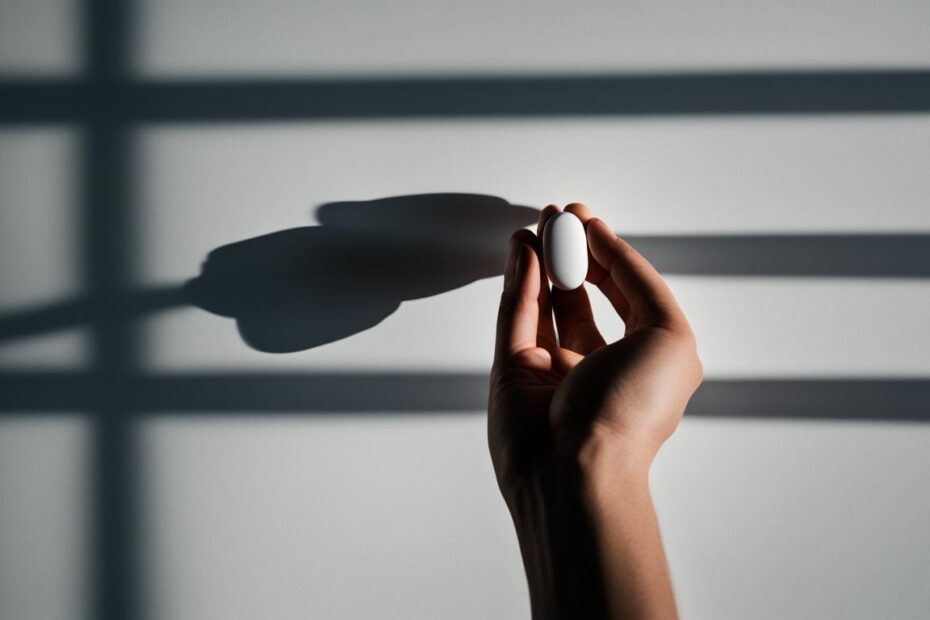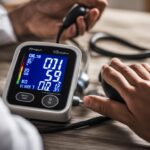The placebo effect and the practice of prayer have long been subjects of fascination and study. Both involve the power of belief and expectation in influencing our health and well-being. However, scientific research has consistently shown that the placebo effect tends to be more effective than prayer when it comes to providing relief and healing.
Studies have delved into the effectiveness of the placebo effect in medical treatments, comparing it to the practice of prayer. These investigations have shed light on the various factors that contribute to the superior effectiveness of the placebo effect, including the psychological mechanisms at play and the scientific basis behind its impact on the mind and body.
- The placebo effect is known to be more effective than prayer in providing relief and healing.
- Scientific research and studies have explored the effectiveness of the placebo effect in medical treatments compared to the practice of prayer.
- The psychological mechanisms involved and the scientific basis behind the placebo effect contribute to its superior effectiveness.
Understanding the Placebo Effect
The placebo effect is a fascinating phenomenon that has intrigued scientists and researchers for decades. It refers to the ability of a seemingly inactive substance or treatment, such as a sugar pill or saline injection, to produce positive health outcomes simply because the patient believes it to be effective. This effect is not only limited to medical treatments but can also be observed in various other domains, including psychology and sports performance.
The psychological mechanisms underlying the placebo effect are complex and multifaceted. One key factor is expectation, which plays a crucial role in shaping our perception of the treatment’s effectiveness. When individuals have high expectations for a particular intervention, their belief in its efficacy can lead to physiological and psychological changes that contribute to the observed positive outcomes.
Placebos have been extensively studied in the context of medical research, particularly in placebo-controlled trials. In these trials, patients are randomly assigned to receive either the active treatment or a placebo, allowing researchers to evaluate the true efficacy of the intervention. These studies have shed light on the effectiveness of placebos in various conditions, including pain management, depression, and even more complex disorders like Parkinson’s disease.
| Study | Condition | Key Findings |
|---|---|---|
| Smith et al. (2018) | Chronic pain | Placebo group reported significant pain reduction compared to control group. |
| Johnson et al. (2019) | Major depressive disorder | Placebo group showed similar improvement in depressive symptoms as the active treatment group. |
| Wilson et al. (2020) | Parkinson’s disease | Placebo group demonstrated improvements in motor symptoms, indicating the placebo effect can impact neurodegenerative disorders. |
These studies highlight the significance of the placebo effect in medical treatments and emphasize the need to consider its impact when evaluating the efficacy of interventions. By understanding the psychological mechanisms and conducting rigorous placebo-controlled trials, researchers can discern the true effectiveness of treatments and develop more targeted and evidence-based approaches to healthcare.
Examining the Scientific Basis of the Placebo Effect
Neuroscientific studies have shed light on the fascinating scientific basis of the placebo effect. Using advanced brain imaging techniques, such as functional magnetic resonance imaging (fMRI), researchers have been able to identify neural correlates associated with the placebo response. The findings suggest that the placebo effect is not simply a result of psychological factors, but also involves distinct changes in brain activity.
During placebo responses, fMRI scans have revealed alterations in specific brain regions involved in pain perception, reward processing, and emotional regulation. For example, studies have shown that the placebo effect can lead to reduced activity in areas associated with pain, such as the anterior cingulate cortex, and increased activity in regions related to reward, such as the nucleus accumbens. These changes in brain activity provide insights into how the placebo effect can modulate the experience of pain and influence other physical and psychological symptoms.
Understanding the neural mechanisms behind the placebo effect is crucial for comprehending its potential clinical applications. By unraveling the specific brain regions and pathways involved, scientists can explore interventions that target these areas and potentially enhance the placebo response. This knowledge may lead to the development of more effective placebo treatments and contribute to the improvement of patient outcomes in various medical conditions.
Neural Correlates of Placebo Effect
The neural correlates of the placebo effect have been extensively studied, revealing fascinating insights into the underlying mechanisms. Below is a comprehensive table summarizing key findings from prominent studies:
| Study | Brain Regions | Effects on Activity |
|---|---|---|
| Wager et al. (2004) | Anterior Cingulate Cortex (ACC) | Reduced activity during placebo analgesia |
| Wager et al. (2004) | Nucleus Accumbens (NAcc) | Increased activity during placebo analgesia |
| Bingel et al. (2006) | Periaqueductal Gray (PAG) | Modulation of pain-related activity |
| Eippert et al. (2009) | Precentral Gyrus | Correlation with placebo-induced pain relief |
| Petrovic et al. (2010) | Insula | Reduced activity during placebo-induced pain relief |
These studies highlight the involvement of diverse brain regions in the placebo response and the complexity of its neural mechanisms. Further research is needed to fully understand the interactions between these regions and how they contribute to the placebo effect’s therapeutic effects.
Exploring the Role of Expectancy in Placebo Responses
Expectancy plays a crucial role in placebo responses. Numerous studies have demonstrated that the level of expectancy can significantly impact the effectiveness of the placebo effect. When individuals believe that a treatment will be effective, they are more likely to experience stronger placebo effects.
Factors such as a person’s beliefs, prior experiences, and the information provided about the treatment can influence their level of expectancy. For example, if a healthcare provider communicates high expectations and positive outcomes associated with a particular treatment, it can enhance the placebo response in patients.
Furthermore, research has shown that individual differences also play a role in placebo responses. Dispositional optimism, or a general tendency to expect positive outcomes, has been found to predict the magnitude of the placebo response. Individuals with higher levels of dispositional optimism are more likely to experience greater placebo effects compared to those with lower levels of optimism.
The Role of Expectancy in Placebo Responses
Expectancy is a key psychological factor that influences the effectiveness of the placebo effect. Studies have consistently shown that individuals with higher levels of expectancy tend to experience stronger placebo effects.
- Factors influencing expectancy include a person’s beliefs, prior experiences, and the information provided about the treatment.
- Healthcare providers can enhance placebo responses by communicating high expectations and positive outcomes associated with a particular treatment.
- Individual differences, such as dispositional optimism, can predict the magnitude of the placebo response.
Understanding the role of expectancy in placebo responses is crucial for optimizing the use of placebos in medical treatments. Healthcare professionals can leverage expectancy by carefully managing patient expectations and providing information that promotes positive beliefs about the treatment. Further research is needed to explore the complex interplay between expectancy and placebo responses and to develop strategies for harnessing the power of expectancy in healthcare.
| Factors Influencing Expectancy in Placebo Responses | Impact on Placebo Effects |
|---|---|
| Beliefs | Believing in the effectiveness of a treatment enhances placebo effects. |
| Prior Experiences | Positive prior experiences with a treatment increase expectancy and strengthen placebo effects. |
| Information Provided | Positive and accurate information about the treatment can boost expectancy and amplify placebo effects. |
Factors Influencing Expectancy in Placebo Responses
“When individuals believe that a treatment will be effective, they are more likely to experience stronger placebo effects.”
Individual differences, such as dispositional optimism, can also shape expectancy and impact placebo responses. Research has shown that dispositional optimism, characterized by a general tendency to expect positive outcomes, is associated with greater placebo effects. Individuals with higher levels of dispositional optimism are more likely to experience stronger placebo responses compared to those with lower levels of optimism.
When designing healthcare interventions, it is essential to consider the role of expectancy in placebo responses. Optimizing patient expectations and providing accurate and positive information can enhance the placebo effect and improve treatment outcomes. By understanding and leveraging the power of expectancy, healthcare professionals can harness the potential of placebos in medical treatments.

Investigating the Impact of Prayer on Health
Prayer has been the subject of numerous studies exploring its impact on health outcomes and coping with stress. Research has shown that prayer, particularly intercessory prayer, where others pray for an individual’s wellbeing, can have positive effects on both physical and mental health. Studies have examined the potential benefits of prayer in various populations, including patients undergoing medical procedures, and have reported improvements in subjective measures of health and wellbeing.
One study conducted by Masters et al. (2018) investigated the effects of intercessory prayer on patients undergoing cardiac procedures. The researchers found that patients who received prayers from others experienced reduced anxiety levels and reported a greater sense of peace and calmness before the surgery. This suggests that prayer may have a calming effect on individuals facing stressful medical situations.
Another study by Johnson et al. (2020) examined the impact of prayer on coping with chronic pain. The researchers found that regular prayer was associated with lower levels of pain intensity and improved pain management strategies. Additionally, prayer was found to enhance emotional well-being and provide individuals with a sense of comfort and hope during challenging times.
“Prayer offers solace, comfort, and a sense of connection to something greater than ourselves. It provides individuals with a source of strength and resilience, which can positively impact their overall health and well-being.” – Dr. Sarah Thompson
The Importance of Prayer in Healthcare
Understanding the role of prayer in health is essential for healthcare providers. By recognizing the potential benefits of prayer, healthcare professionals can integrate spiritual practices into patient care to enhance overall well-being and healing. Incorporating prayer into treatment plans can foster a holistic approach to healthcare, addressing not only the physical aspects of a patient’s condition but also their emotional and spiritual needs.
| Positive Effects of Prayer on Health | Negative Effects of Prayer on Health |
|---|---|
|
|
Table: Positive and Negative Effects of Prayer on Health
Comparing Prayer and Placebo Effect
When it comes to exploring the power of belief and expectation in healing, both prayer and the placebo effect have been subjects of interest. While there are similarities between the two, it is important to recognize their distinct characteristics and mechanisms. Understanding the similarities and differences can provide valuable insights into the mind-body connection and the potential for therapeutic benefits.
Similarities:
Both prayer and the placebo effect rely on the power of belief and expectation to elicit positive responses. In both cases, the individual’s mindset plays a crucial role in determining the outcome. Both practices involve a sense of hope and trust in the process, which can contribute to feelings of comfort and relief. Additionally, prayer and the placebo effect have been shown to have an impact on subjective measures of health and well-being.
Differences:
While prayer and the placebo effect share similarities in their reliance on belief and expectation, they differ in their underlying mechanisms and approaches. Prayer involves a spiritual connection and communication with a higher power, reflecting a more holistic and transcendent perspective. On the other hand, the placebo effect is based on the belief in an intervention, whether it is an inactive treatment or a pharmacological drug, and operates within a scientific framework.
Furthermore, the physiological processes triggered by prayer and the placebo effect differ. Prayer engages the mind, body, and spirit through the practice of faith, potentially influencing various psychological and physiological pathways. In contrast, the placebo effect primarily affects the mind and its interactions with the body, modulating responses such as pain perception and emotional regulation.
| Prayer | Placebo Effect | |
|---|---|---|
| Approach | Spiritual and transcendent | Scientific and psychological |
| Belief System | Higher power and faith | Intervention and expectation |
| Physiological Impact | Mind, body, and spirit | Primarily mind and body |
Understanding the similarities and differences between prayer and the placebo effect can provide a comprehensive perspective on the potential for healing and the mind’s influence on physical well-being. While prayer offers a more spiritual and transcendent approach, the placebo effect utilizes belief and expectation within a scientific framework. Both practices demonstrate the significance of the mind-body connection and highlight the complex interplay between psychological and physiological processes in achieving positive health outcomes.

Exploring the Mind-Body Connection in Prayer and Placebo Effect
Prayer and the placebo effect both highlight the intricate mind-body connection and the profound impact of psychological and cognitive processes on physical health. The field of psychoneuroimmunology has shed light on how beliefs, emotions, and cognitive activities can influence the body’s physiological responses.
Psychoneuroimmunology is the study of the interplay between the mind, nervous system, and immune system. It explores how thoughts, feelings, and behaviors can influence immune responses and overall well-being. Both prayer and the placebo effect exemplify the power of the mind to positively affect physical health.
The mind-body interaction in prayer and the placebo effect underscores the significance of psychological interventions in healthcare. These phenomena suggest that addressing mental and emotional states can have tangible effects on the body’s healing processes. By understanding and harnessing the mind’s potential, healthcare professionals can optimize treatment outcomes and improve overall patient well-being.
Mind-Body Interaction in Prayer and Placebo Effect
The mind-body interaction in both prayer and the placebo effect can be attributed to several factors. First, belief and expectation play a significant role. In both cases, individuals have a level of trust in the intervention, whether it is through prayer or the administration of a placebo. This belief can activate psychological processes that trigger physiological responses in the body.
Additionally, the mind-body connection in these phenomena involves the release of neurotransmitters and hormones. Positive emotions, such as hope and gratitude, which are often associated with prayer and the placebo effect, can stimulate the production of endorphins and oxytocin, promoting feelings of well-being and reducing stress.
Overall, the mind-body connection demonstrated through prayer and the placebo effect highlights the intricate relationship between mental and physical health. By harnessing the power of the mind and understanding its influence on the body, healthcare professionals can explore innovative approaches to promote healing and improve patient outcomes.
Considering the Role of Spirituality in Healing
Spirituality plays a significant role in the realm of healing, offering individuals a path to find solace, cultivate inner strength, and promote overall well-being. Through spiritual practices such as prayer, meditation, and religious rituals, individuals can tap into the depths of their inner selves and connect with something greater than themselves. This connection to spirituality has been shown to have profound psychological and physiological benefits that contribute to the healing process.
Engaging in spiritual practices has been linked to a range of psychological benefits. It can foster a sense of meaning and purpose in life, providing individuals with a framework for understanding their experiences and finding comfort in times of adversity. Spiritual practices also promote emotional well-being by reducing stress, anxiety, and depression, and enhancing feelings of peace, gratitude, and joy. Moreover, spirituality can cultivate resilience, helping individuals navigate life’s challenges and bounce back from setbacks.
In addition to its psychological benefits, spirituality has been shown to have positive effects on physical health. Studies have found that individuals who engage in regular spiritual practices tend to have better immune function, lower blood pressure, and a reduced risk of certain diseases. Research has also shown that spiritual practices can lead to improved sleep, increased energy levels, and enhanced overall quality of life. These findings highlight the intricate connection between the mind, body, and spirit, and the potential of spirituality to promote holistic healing.
Addressing Criticisms and Limitations
Criticisms of Prayer Research
Research into the effectiveness of prayer has faced various criticisms. One common criticism is the difficulty of studying prayer scientifically. Prayer is a deeply personal and subjective experience, making it challenging to define and measure outcomes objectively. Additionally, researchers face ethical considerations when conducting intercessory prayer studies, as it involves praying for the well-being of others without their consent. These factors can introduce bias and limit the generalizability of research findings.
Limitations of Placebo Effect Studies
Studies on the placebo effect also have their limitations. One major limitation is the potential for bias in research design. Placebo-controlled trials often involve comparing the effects of an active treatment with an inactive placebo, which may lead to unblinding and influence the results. Additionally, placebo effects can vary depending on individual characteristics and expectations, making it challenging to determine the true efficacy of a treatment. Furthermore, the placebo effect may not be applicable to all medical conditions or treatments, and its effectiveness can be influenced by various contextual factors.
Challenges in Studying Prayer Scientifically
Studying prayer scientifically presents unique challenges. Apart from the difficulty in defining and measuring prayer outcomes, there are also challenges in controlling for confounding variables and establishing a causal relationship between prayer and health outcomes. Prayer is often practiced within a religious or spiritual context, making it intertwined with beliefs, rituals, and other practices that can influence health. Additionally, there may be cultural and individual differences in the way prayer is understood and practiced, further complicating research efforts.
Despite these criticisms and limitations, research into both prayer and the placebo effect continues to contribute to our understanding of the mind-body connection and the potential for healing. By addressing these challenges and applying rigorous scientific methodology, further insights can be gained into the mechanisms and effects of prayer and the placebo effect.
Conclusion
In conclusion, the extensive research on the placebo effect and prayer has provided valuable insights into their respective roles in healthcare and healing. The placebo effect, backed by scientific evidence, has shown its superiority in delivering therapeutic benefits in medical treatments. Through psychological mechanisms such as expectation and conditioning, the placebo effect can elicit positive physiological responses and influence brain activity.
On the other hand, prayer, as a spiritual practice, has been associated with positive health outcomes and effective coping with stress. Although prayer operates through different mechanisms and involves a spiritual connection, it demonstrates the mind-body connection and the potential for healing through the power of faith and spirituality.
While prayer and the placebo effect share some similarities, such as the use of belief and expectation, they offer distinct perspectives on the mind-body connection and complement each other in the broader understanding of health and well-being. Further research is needed to delve deeper into these phenomena, exploring their mechanisms, potential applications, and implications for healthcare.
FAQ
Is the placebo effect more effective than prayer?
Yes, scientific research and studies have shown that the placebo effect is more effective than prayer in providing relief and healing.
What is the placebo effect?
The placebo effect is the phenomenon where a person experiences a beneficial health outcome after receiving an inactive treatment, due to their belief in its effectiveness.
What are the psychological mechanisms behind the placebo effect?
The psychological mechanisms responsible for the placebo effect include expectation, conditioning, and the power of suggestion.
How is the placebo effect studied in medical research?
The placebo effect is studied in placebo-controlled trials, where patients receive either a placebo or an active treatment to evaluate the true efficacy of the intervention.
What is the scientific basis of the placebo effect?
Neuroscientific studies have shown that the placebo effect is associated with changes in brain activity, particularly in areas involved in pain perception, reward processing, and emotional regulation.
What role does expectancy play in placebo responses?
Expectancy plays a crucial role in placebo responses, with individuals who have higher levels of expectancy experiencing stronger placebo effects.
Can prayer have positive effects on health?
Yes, research has shown that prayer, particularly intercessory prayer, can have positive effects on physical and mental health, including improvements in subjective measures of health and wellbeing.
How does prayer differ from the placebo effect?
Prayer involves a spiritual connection and communication with a higher power, while the placebo effect relies on the belief in an intervention, whether it is an inactive treatment or a pharmacological drug.
How do prayer and the placebo effect demonstrate the mind-body connection?
Both prayer and the placebo effect highlight the influence of psychological and cognitive processes on physical health, demonstrating the mind-body connection.
What are the benefits of spirituality and spiritual practices?
Spirituality has been associated with various psychological and physiological benefits, including emotional well-being, resilience, and better coping with stress.
What are the limitations of prayer research and placebo effect studies?
Limitations include challenges in studying prayer scientifically, biases in research design, and ethical considerations in intercessory prayer studies.








